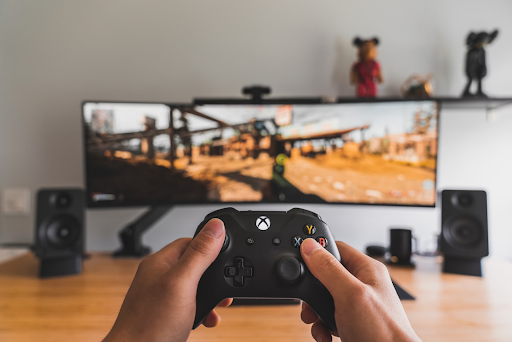Search
[{{{type}}}] {{{reason}}}
{{/data.error.root_cause}}{{{_source.title}}} {{#_source.showPrice}} {{{_source.displayPrice}}} {{/_source.showPrice}}
{{#_source.showLink}} {{/_source.showLink}} {{#_source.showDate}}{{{_source.displayDate}}}
{{/_source.showDate}}{{{_source.description}}}
{{#_source.additionalInfo}}{{#_source.additionalFields}} {{#title}} {{{label}}}: {{{title}}} {{/title}} {{/_source.additionalFields}}
{{/_source.additionalInfo}}Game Localization Hacks for Indie Developers
Indie game developers are often on a tight budget, balancing passion with the realities of funding. Yet, game localization is a powerful tool to expand your player base and increase revenue. It's no longer just an option for big studios. Here's how to localize effectively without breaking the bank.
Why Game Localization MattersBefore we delve into the how, let's discuss the why. Why is localization a worthwhile investment for your indie game?
- Increased Revenue: According to a study by GameAnalytics, mobile games that are localized see an average increase of 128% in revenue per user and 26% in average revenue per paying user (ARPPU).
- Expanded Audience: Over 50% of the global gaming market is located outside of North America and Western Europe. Localization opens doors to vast audiences in Asia, Latin America, and other regions.
- Enhanced Player Engagement: Players are more likely to connect with a game that's in their native language, leading to increased playtime, positive reviews, and word-of-mouth recommendations.
Not all languages are created equal when it comes to market potential. Start by researching which languages will give you the most bang for your buck. Consider these factors:
- Market Size: Look at the number of active gamers in a region and the spending power of those gamers.
- Competition: How many localized games are already available in a particular language? Less competition might mean more opportunity.
- Cultural Fit: Does your game's theme and humor translate well to a particular culture?
Often, the top languages for game localization include:
- Simplified Chinese
- Japanese
- Korean
- French
- German
- Spanish
- Portuguese (Brazilian)
- Russian
Remember, start small. It's better to localize your game well into a few key languages than poorly into many.
Hack #2: Embrace Community TranslationYour fanbase is a powerful resource. Many players are passionate about your game and may be willing to help with translation efforts. Consider creating a community translation platform or engaging with fan groups on social media.
Benefits of Community Translation:
- Cost-Effective: It's a fantastic way to get high-quality translations without a large budget.
- Cultural Expertise: Fans often have a deep understanding of gaming lingo and cultural references in their language.
- Builds Community: Engaging with fans in this way strengthens their connection to your game.
Word of Caution: Always ensure a professional review of community translations to maintain quality and consistency.
Hack #3: Master the Art of Pseudo-LocalizationBefore committing to full localization, consider pseudo-localization. This is a process of simulating a translation without actually doing it. You can replace English text with accented characters or longer strings of text to see how your game's layout and UI will handle different languages.
This simple hack can save you from costly UI overhauls later on. It helps identify potential issues with text expansion (some languages take up more space than others) and font compatibility.
Hack #4: Leverage Machine Translation (with Caution)Machine translation tools have come a long way and can be a useful starting point, especially for text-heavy games. They can help you quickly get a feel for how your text might look in other languages and potentially save you time on repetitive tasks. However, exercise caution and don't rely solely on machine translation. Always have a human translator or editor review the output to ensure accuracy, cultural sensitivity, and overall quality.
Some popular machine translation tools include:
- Google Translate: The most well-known option, offering translations in over 100 languages. It's a good all-around tool for quick translations but may not always be accurate for nuanced or creative text.
- DeepL: Known for its high-quality translations, especially for European languages. DeepL often outperforms Google Translate in terms of accuracy and natural-sounding output.
- MachineTranslation.com: An AI translation tool that aggregates various machine translation engines (including Google, Microsoft, and Yandex) and allows you to compare their results side-by-side. It can be helpful for getting a broader perspective on potential translations.
When to Use Machine Translation:
- Early Drafts: To get a general sense of how text might look in other languages and estimate translation volumes.
- Repetitive Text: For interface elements, menus, and other text that doesn't require a lot of nuance or creativity.
- Time Constraints: When you need a quick translation to get the ball rolling, but always plan for a human review afterward.
When NOT to Use Machine Translation:
- Marketing Materials: These require a high degree of polish and cultural adaptation.
- In-Game Dialogue: Nuances in character speech and humor are difficult for machines to capture accurately.
- Legal Documents: Accuracy is paramount here, and machine translation is simply not reliable enough.
By using machine translation tools strategically and with a healthy dose of caution, you can potentially speed up your localization process and reduce costs, while still ensuring the final is of high quality.
Hack #5: Optimize for CulturalizationLocalization is more than just translating words. It's about adapting your game to fit the cultural context of your target audience. This means considering things like:
- Humor: Jokes and references that work in one culture might not land in another.
- Symbols and Colors: Be mindful of cultural connotations. Certain colors or symbols may have different meanings in different cultures.
- User Interface: Adjust UI elements based on cultural preferences. For example, some cultures prefer a more minimalist UI, while others prefer a busier one.
Culturalization is key to creating a truly localized experience.
Hack #6: Test, Test, Test!Thoroughly test your localized game with native speakers. Don't just rely on automated tests. Have real people play the game and provide feedback on the language, cultural accuracy, and overall user experience.
Testing can help you identify:
- Translation errors
- Cultural missteps
- UI/UX issues
If your budget allows and the scope of your localization project is extensive, partnering with a professional localization company is a wise move. Localization companies specialize in the complex process of adapting games for different languages and cultures, offering expertise and resources you may not have in-house. They can handle everything from translation and cultural consulting to voice-over and quality assurance, ensuring your game reaches its full potential in new markets.
Benefits of Partnering with a Localization Expert:
- Expertise: They have deep knowledge and experience in the nuances of game localization, including linguistic, cultural, and technical aspects.
- Resources: Localization companies have access to a network of professional translators, voice actors, cultural consultants, and technical experts who are well-versed in the gaming industry.
- Time-Saving: By outsourcing the localization process, you can free up your internal team to focus on core development tasks and get your game to market faster.
- Quality Assurance: Localization companies have rigorous quality control processes to ensure that translations are accurate, culturally appropriate, and consistent with your game's brand and tone.
Some Reputable Localization Companies to Consider:
- Tomedes: A translation company offering translation, localization, and interpreting services in a wide range of industries, including gaming. They have a strong reputation for quality and customer service.
- Acolad: A leading European language services provider specializing in translation, localization, and content creation. They have extensive experience working with game developers and publishers of all sizes.
- RWS: A global language solutions provider offering a full suite of services, including translation, localization, multimedia, and technology. They have a dedicated gaming division with a proven track record in the industry.
These are just a few examples of reputable localization companies with a track record of success in the gaming industry. It's essential to research different companies and compare their services, expertise, and pricing to find the right fit for your specific needs and budget.
Partnering with a localization expert can be a valuable investment for indie developers looking to expand their global reach and create a truly localized experience for players around the world.
The Bottom LineGame localization is a powerful tool for indie developers to reach a wider audience and boost revenue. By applying these hacks, you can overcome budget constraints and create a localized experience that resonates with players around the world.
When you subscribe to the blog, we will send you an e-mail when there are new updates on the site so you wouldn't miss them.








Comments